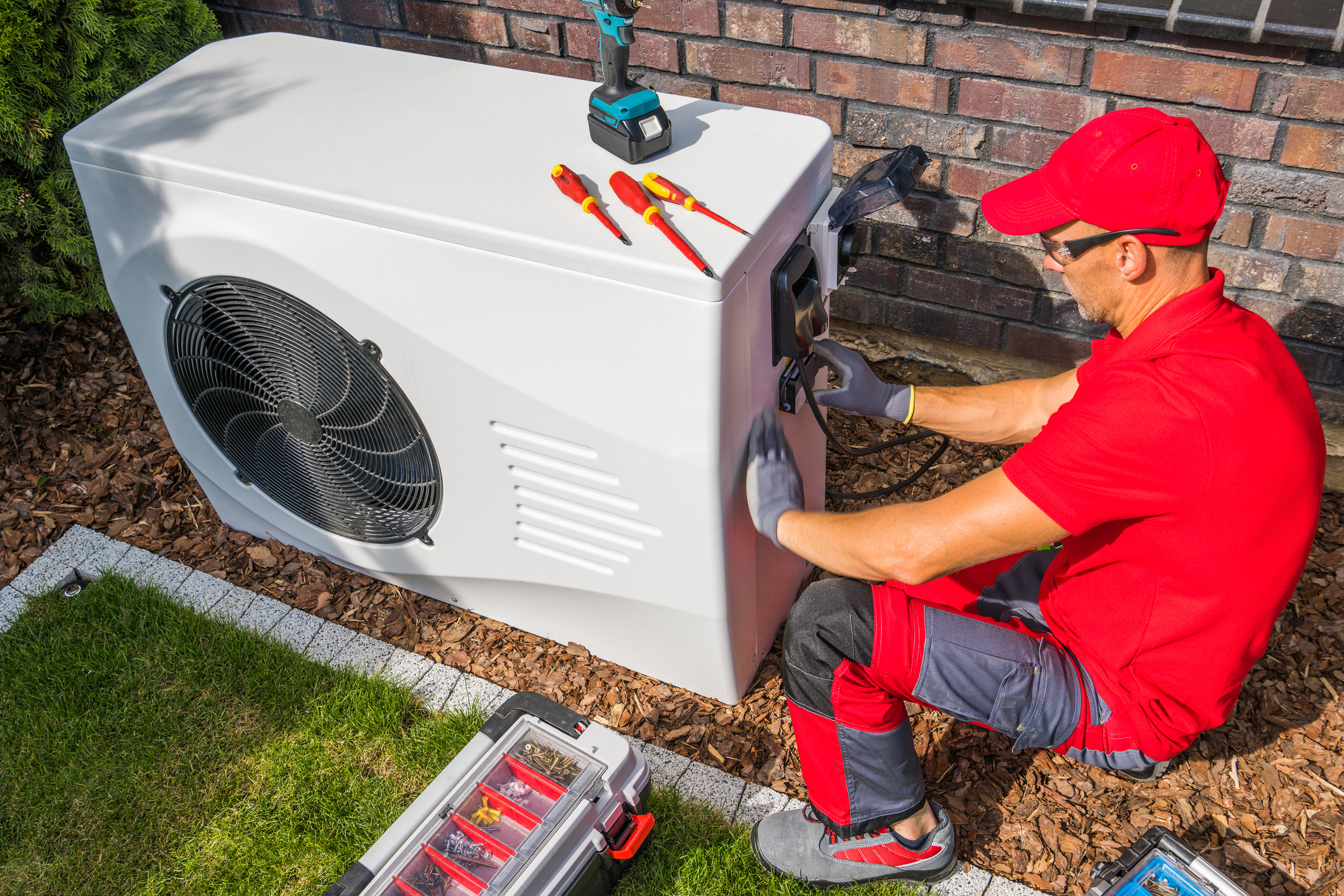How Does A Heat Pump Work In Winter
A heating system in any home is essential, especially during those cold Ontario winters. If your current heating system is on the fritz, you may be in the market for a new one. A popular choice amongst homeowners is heat pumps, as they are energy-efficient solutions that are customizable to the needs of each homeowner. So, how does a heat pump work in the winter?
Keep reading to learn more!
How do heat pumps work when it's cold outside?
Heat pumps operate differently in cold weather than they do in warm weather. This is due to the fact that heat pumps rely on obtaining heat from the outside air and sending it into your home, which can be difficult when temperatures decrease.
In order to compensate, most modern heat pumps include a defrost cycle that activates when the outside temperature drops below freezing. The heat pump will temporarily stop heating your home and switch to cooling mode during this cycle, allowing it to warm up the outdoor unit and melt away any ice accumulation.
When the defrost cycle is finished, the heat pump will return to heating mode and begin heating your home again. However, keep in mind that the defrost cycle can temporarily make your home feel cooler, which can get uncomfortable at times.
Heat pumps can be fitted with additional heating elements, such as a furnace, in addition to the defrost cycle to assist with providing additional heat when temperatures outside drop too low. Even in the coldest weather, these supplementary heaters can help keep your home warm and cozy.
Overall, heat pumps are an extremely effective and energy-efficient heating solution for many homeowners, even if they are not as efficient in very cold temperatures as they are in milder weather. If you're thinking about getting a heat pump for your residence, it's always an excellent decision to talk to a professional HVAC technician who can advise you on the best system for your needs, which may involve installing a secondary heating or cooling system for when temperatures reach extreme thresholds.
At what temperature is a heat pump useless?
While heat pumps are known to be efficient heating and cooling solutions for homes in mild climates, they lose their ability to operate correctly in extreme temperatures. Generally speaking, homeowners can expect their heat pump to struggle when the outdoor temperature is as low as -15 degrees Celsius or as hot as 35 degrees Celsius. As such, if you live in a region where the temperatures are more volatile throughout the year, a heat pump may not be the best choice for your home because, in order for a heat pump to work properly, there must be a sufficient supply of heat energy in the air to extract. On the other hand, if there is too much heat energy in the air, it will not be able to extract and move enough of it to cool your interior.
Should the heat pump run constantly in winter?
A couple of variables will influence whether or not your heat pump should run continuously during the winter. In general, your heat pump does not need to run continuously, although there are some circumstances in which it may be helpful.
If you have a programmable thermostat, for example, you can set your heat pump to function at a lower setting when you aren't at home or sleeping. This may assist you in saving money on energy without compromising comfort.
If you favour an even temperature throughout your home, on the other hand, you might choose to keep your heat pump operating at all times. This can assist in maintaining a consistent temperature and avoiding variations that can cause your home to feel too hot or cold.
When choosing whether or not to run your heat pump continuously, it's additionally essential to think about the temperature outside. In extremely cold weather, your heat pump might be unable to produce enough heat to keep your home at an appropriate temperature. In this case, a supplemental heating source, such as a furnace or boiler, may be more helpful to keep your home warm.
Nonetheless, whether or not to run your heat pump continuously during the winter will be determined by your own tastes, the climate, and your energy consumption habits.
Can you use a heat pump with a furnace?
Absolutely! In fact, a lot of homeowners opt for both a heat pump and a furnace to build a hybrid heating system that delivers year-round warmth and energy savings.
This is how it performs: throughout the cooler months of the year, the furnace takes over and heats your home with natural gas, propane, or oil. This is because heat pumps, which rely on outdoor air to generate heat, are less efficient in temperatures that are frigid (below -15 degrees Celsius).
During milder weather, however, your heat pump can take control and provide heat to your residence via electricity. Heat pumps are extremely effective in conditions above freezing since they are able to capture heat from the outside air and move it into your house. By combining the two systems, you can accomplish ultimate efficiency and comfort during the year.
One of the major benefits of using a hybrid heating system is the ability to determine which system to use according to the weather outside and personal tastes. This can help you save money on your bills while having peace of mind knowing that you'll be able to heat your home no matter what the weather has in store. An added bonus is that your home will be more environmentally friendly!
Are you ready to upgrade your home heating and comfort? If the answer is yes, the team at Francis Home Environment is your go-to HVAC company in the Ottawa area and surrounding neighbourhoods! Call and book your consultation appointment with one of our home comfort advisors today and receive a free new system purchase quote!




